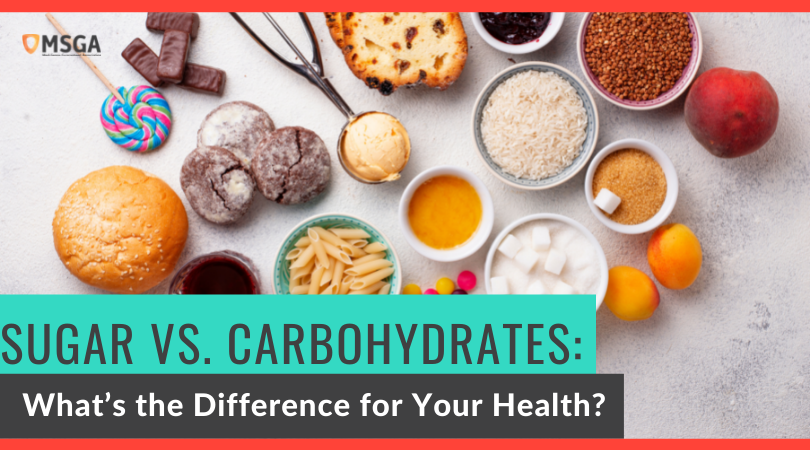Bread, candy, sugar, pasta – it’s all sugar and carbohydrates. The question stands, what’s the difference? When it comes to the war on foods, carbohydrates really get a bad reputation. It’s unfortunate because carbohydrates have been the lifeblood of human existence for thousands of years. Why do people now think that they’re bad for them?
The reality is that carbs themselves are not bad – it is the processed, sugar-rich carbs which provide the bulk of bad news in your diet.
Here’s the thing: sugar is a nutrient that tastes great, but it is completely non-essential in our diet.
In fact, most unprocessed carbohydrates (fruit, vegetables) will contain a plentiful supply of glucose and fructose to provide energy to the body. There’s no need to consume pure sugar.
Processed sugar will provide you nothing but inflammation – inflammation of cardiac muscle, arteries and many other systems – that is completely unnecessary.
So, how do you tell the difference between good sugar (found in wholesome carbs) and bad sugar?
Stay Away from Processed Foods
Processed foods really are the worst thing for you. Yes, they’re easy to consume and very tasty, but if you are concerned about your health, this is an area that’s important to pay attention to.
Foods with processed sugar come in many forms, such as cereals, yogurts (high in lactose, another sugar), and pastries. Even some processed meats have sugar-rich sauces on them.
If you’d like to cut down on sugar, simply avoid foods that are overly processed. This will definitely lower your sugar intake each day.
How to Escape the Sugar Trap
As you may know, complex carbohydrates like ancient grains, fruit, and vegetables provide a very good source of metabolized glucose (to fuel the brain) and glycogen (to be stored in muscle and liver).
Eating wholesome foods in their most natural form will always be the easiest way to ensure you are getting the nutrients you want and none of the inflammatory properties of processed sugars.
Do I Need to Completely Eliminate Sugar?
This is something that needs to be clarified. Sugar is not necessarily bad, but the rate at which most people consume it can be very detrimental to your health.
Anything that has insulinogenic properties (in other words, it raises insulin levels) can lead to an imbalance in the body over time.
High-sugar foods are not only addictive to the body and brain, but they also cause massive surges in insulin levels.
The secret? Consume fiber. Fiber has a unique property that not only limits inflammation but also relaxes insulin levels. For this reason, many who suffer from diabetes consume higher than normal fiber levels to counteract inflammation.
So, if your body doesn’t have insulin issues, a small amount of sugar probably won’t hurt you as long as you can counteract the inflammation it can cause.
Coming Full Circle
The main difference between sugar and carbohydrates is the fiber content and the true nutrients it provides.
Sugar provides only a very short burst of energy, whereas a complete carbohydrate (oats, for example) provides a very good source of vitamins, minerals, fiber, protein, and healthy carbohydrates that are metabolized into glycogen.
Keep it simple and limit your consumption of processed foods, and you will see a major difference in your body composition, strength, and energy levels.

